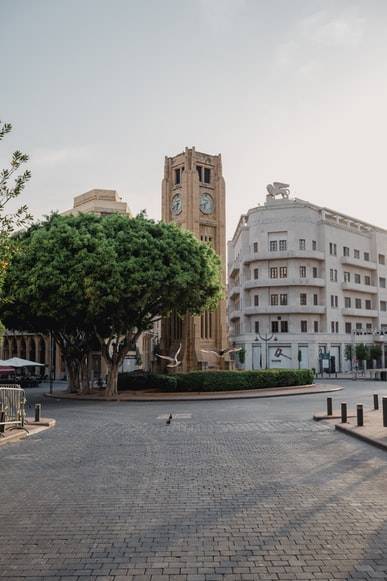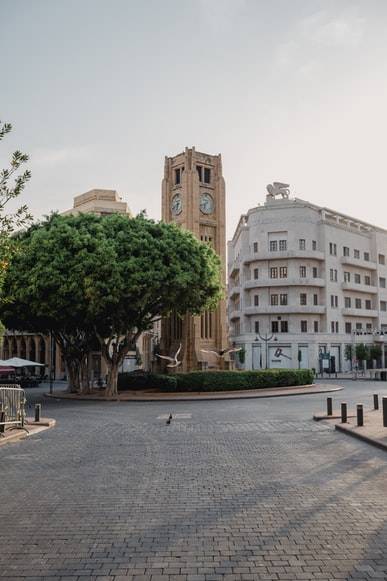Political circles fear that the pursuit of Judge Ghada Aoun against the Governor of the Central Bank of Lebanon, Riad Salameh, and several banks, which is marked by populism, along with the prosecution of Lebanese Forces leader Samir Geagea by the government commissioner at the military court, Judge Fadi Akiki, in the context of the Tayouneh events, could lead Lebanon into even more dangers that threaten the scheduled parliamentary elections on May 15. This comes despite President Michel Aoun's insistence on holding them without delay.
Political circles note that the timing of reopening these files contradicts the need to create a conducive environment for the electoral process, opening the door to potential security and political disturbances that could threaten civil peace and undermine stability. This is particularly concerning against the backdrop of the soaring dollar exchange rate, which has become impossible to control amid the onslaught targeting the banking system and undermining its remaining pillars under the pretext of protecting depositors' funds, and the inability of Prime Minister Najib Mikati's government to intervene in a timely manner, especially given that legal actions remain focused on banks without extending to the electricity sector or other files.
These political circles accuse the political faction aligned with the President, loyal to "the Free Patriotic Movement" leader Jibran Bassil, of being behind the reopening of files in a bid to postpone the elections. They question how this faction can reconcile its commitment to conducting the elections on time while continuing to undermine the atmosphere necessary for stability, a prerequisite for passing the electoral process.
The same circles express concern that vacating the position might be the only option for Bassil, who continues to rely on developments that might allow him to lift the imposed American sanctions, which remain his primary concern. They reveal that he is behind the delay in resuming indirect Lebanese-Israeli negotiations for maritime border demarcation with U.S. mediation and under U.N. supervision.
They contend that there was no point in the President's insistence on amending Decree 6433 related to maritime borders and their delineation since he has shifted his attention away from it. They say that his meeting with Parliament Speaker Nabih Berri and Prime Minister Mikati, which was intended to define Lebanon's stance on the proposal put forward by American mediator Amos Hochstein, concluded without tangible results. They question who benefits from wasting time and why President Aoun attempted to bypass Berri's proposal, which led to the framework agreement to initiate indirect negotiations.
They assert the need to return to the roadmap outlined by Berri, and that invoking the amendment of Decree 6433 was out of place. They contend that merely bringing it up serves to negotiate its amendment in exchange for lifting the sanctions on Bassil, which was discussed behind the scenes prior to the retirement of the negotiating Lebanese team led by Brigadier Basim Yassin. They ask why there has been silence regarding Aoun's response to statements that require a rebuttal from him and his political team.
The circles further note that Bassil, despite all his public declarations of readiness to run in the elections and announcing his candidates, is still betting on buying time, hoping that any delay might yield developments allowing him to lift the imposed U.S. sanctions. They report a prominent parliamentary source stating that Bassil has no interest in holding the elections on schedule, as the sanctions constrain him, and the results will not favor him since they won’t return him to Parliament at the head of the largest parliamentary bloc amidst predictions of declining popularity in the Christian community.
Moreover, they assert that Berri insists on conducting the elections on time and will confront any attempts to postpone them, particularly from Bassil, especially now that his chances of reaching the presidency are decreasing. They note that the unconditional support he receives from his ally "Hezbollah," by leveraging its power to pressure its allies to meet Bassil's demands to bolster his position in the Christian street, remains under the condition of not committing to running for the presidency.
It is highlighted that the Shiite duo is unwilling to provide cover for Bassil to postpone the elections as they see themselves as the stronger party able to exercise influence, positioning them as primary voters in the presidential election. Aoun notably spent a significant part of his visit to the Vatican defending "Hezbollah" and its weapons, denying any impact on the security situation for Lebanese citizens and asserting that its arms are used against Israel. This prompted Maronite Patriarch Bechara Al-Rahi to respond by questioning what Aoun is doing in the Arab arenas.
The President focused on polishing "Hezbollah's" image and exonerating it from using its weapons internally, while Judge Akiki chose this precise moment to file charges against Geagea, shortly after Hezbollah's Secretary-General Hassan Nasrallah stated, "Anyone who allies with the Lebanese Forces in the elections is allying with those who killed the victims of the Tayouneh incident," which led Geagea to counter, "Anyone who votes for Hezbollah votes for the killers of Prime Minister Rafik Hariri."
Sources from the March 14 Forces previously questioned whether there was a linkage between Hezbollah's assault on Geagea and Judge Akiki's prosecution, ostensibly on the basis of new evidence that the informant had defected from the "National Liberal Party" and currently operates within the faction tied to Bassil. They wonder whether the timing of the prosecution contributing to instabilities and threatening civil peace was deliberately chosen, especially since Nasrallah's statements seem aimed at prohibiting electoral alliances with Geagea, specifically from Shiite candidates while also instructing Shiite voters to refrain from voting for the Lebanese Forces.
The same sources argue that the timing selected for charging Geagea was inappropriate, not only because it strengthens his position in the Christian street but also due to its lack of political implications beyond the party's Shiite supporters. It could also resonate with the Future Movement's supporters by inciting them against the “Forces,” especially given the swift response from the blue camp that undermined Bassil's efforts to deepen the rift between former allies.
Thus, the timing raises more questions about the utility of reopening these files and could return the country to square one unless Mikati takes action to restrain the inappropriate timing of certain judges in reopening files, alongside the political aggression executed by the "Loyalty to the Resistance" bloc (Hezbollah) through their recent statements, renewing attacks against Saudi Arabia without any prior warning or justification, other than aiming to stifle the Saudi-Kuwaiti initiative regarding Lebanon and nullifying its positive effects, which were welcomed by Mikati as paving the way to resolve the Lebanese-Gulf relationship crisis.
Therefore, the attack by the Loyalty to the Resistance bloc on Saudi Arabia cannot be viewed in isolation from the concurrent visit of Iranian Foreign Minister Hossein Amir-Abdollahian to Beirut, which undeniably aims to align Lebanon with the Resistance axis and isolate it from its Arab surroundings, ultimately marginalizing Mikati’s role in further rectifying Lebanese-Gulf relations.
The question remains: Is Lebanon slipping towards canceling the elections? How will Mikati respond to Judge Aoun's insistence on asserting control over the powers of other judges, encouraged by the "strong presidency" and absent accountability for her actions? It is noteworthy that preparations for the elections are not merely technical, administrative, or logistical but are fundamentally political, placing Mikati in positions of responsibility to piece together the situation and prevent the continued judicial chaos intended to settle scores in favor of Aoun and his political team, which manages affairs through a "situational room" that could lead the country into the unknown.




